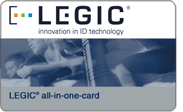Survey: Consumer incentives needed for transit smart cards to work
06 September, 2013
category: Transit
PricewaterhouseCoopers (PwC) found in a recent survey that across the UK, almost half of all bus and rail users still use paper tickets. According to the Yorkshire Evening Post, only four in every 100 people in Yorkshire currently use a dedicated smart card for bus or rail, compared to 77% in London.
PwC asked thousands of consumers about their travel habits and what would make them switch from traditional paper tickets to smart technology ticketing such as smart cards, mobile phones and bank cards. The number one answer, incentives.
Four out of five bus and rail users who currently use paper tickets would move to smart ticketing if there were some kind of incentive for them to do so. Better incentives and discounts on ticketless travel would encourage the vast majority to move to ‘smart ticketing’.
The study found that a 10% discount on travel compared with paper tickets would persuade over half to make the change to smart ticketing. And, even in the absence of price discounts, 42% would be persuaded to use smart ticketing if it guaranteed the lowest available fare for their journey.
PwC research shows that non-price related incentives, including better timetabling and timetabling information, and real time information, could also influence consumer behavior. Twelve percent of respondents would use smart ticketing if it offered them tailored, real time journey information.
The opportunity to link both ticket payment and real time information through smart technology … there is a significant untapped potential demonstrated in these results to use it to increase public transport use by making service timetables, information and fares more accessible.
Even a 4% shift from cars to bus, or eight percent for trains, would represent a significant uplift for public transport operators, and a boost to the Government’s plans to get more people on public transport.



